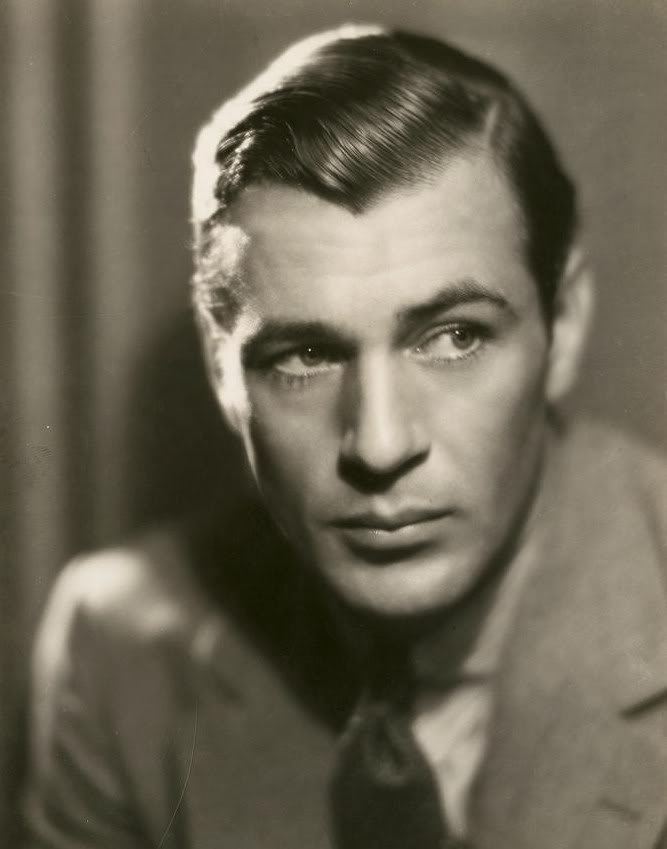Gary Cooper was not just an actor; he was a symbol of American cinema's golden age. Born in the early 20th century, he rose to fame during a time when Hollywood was transitioning from silent films to talkies. His unique blend of rugged masculinity and understated charm made him a favorite among audiences and a respected figure in the film industry. In this article, we will delve into the life, career, and lasting impact of Gary Cooper, exploring what made him one of the most celebrated actors of his time.
As we journey through Cooper's life, we will look at his early years, his rise to fame, and the roles that defined his career. We will also examine the qualities that contributed to his enduring legacy, as well as the personal struggles he faced along the way. By the end of this article, readers will have a comprehensive understanding of Gary Cooper's contributions to film and culture.
This exploration of Gary Cooper will not only highlight his professional achievements but also provide insights into his personal life, revealing the man behind the iconic roles. Join us as we uncover the fascinating story of one of Hollywood's greatest stars.
Table of Contents
- Early Life and Background
- Rise to Fame
- Iconic Roles in Film
- Personal Life and Struggles
- Awards and Honors
- Legacy and Influence
- Conclusion
- Sources
Early Life and Background
Gary Cooper was born Frank James Cooper on May 7, 1901, in Helena, Montana. His father, a prominent rancher, instilled in him a love for the outdoors, which would later influence his on-screen persona. Cooper's early years were marked by a blend of American frontier culture and European sophistication, as his mother was of English descent.
After his family moved to Los Angeles, Cooper attended high school and later enrolled at Grinnell College in Iowa. However, he soon dropped out to pursue a career in acting. With a passion for performing, he began to find work in silent films, starting his journey towards becoming a Hollywood legend.
Rise to Fame
Cooper's breakout role came in 1927 with the film "Wings," which won the Academy Award for Best Picture. His performance captured the attention of audiences and filmmakers alike, paving the way for a successful career in the late 1920s and 1930s. Cooper's natural charisma and screen presence set him apart from his contemporaries, allowing him to transition smoothly from silent films to talkies.
Throughout the 1930s, Cooper starred in a string of successful films, including "The Virginian" (1929) and "Mr. Deeds Goes to Town" (1936). His ability to portray strong, yet vulnerable characters resonated with viewers, establishing him as a leading man in American cinema.
Iconic Roles in Film
Gary Cooper's filmography is filled with iconic roles that showcase his range as an actor. Some of his most notable performances include:
- High Noon (1952) - As Sheriff Will Kane, Cooper delivered a powerful performance that explored themes of duty and moral courage.
- Sergeant York (1941) - This role earned him an Academy Award for Best Actor, portraying the true story of a World War I hero.
- For Whom the Bell Tolls (1943) - Based on Ernest Hemingway's novel, Cooper's portrayal of Robert Jordan showcased his dramatic abilities.
- The Fountainhead (1949) - In this adaptation of Ayn Rand's novel, Cooper played an uncompromising architect, further solidifying his status as a Hollywood icon.
Personal Life and Struggles
Despite his on-screen success, Gary Cooper faced personal challenges throughout his life. He was known for his reserved nature, often preferring solitude over the Hollywood social scene. Cooper's marriage to actress Veronica Balfe in 1933 was a significant aspect of his personal life, although they faced difficulties that tested their relationship.
In addition to personal struggles, Cooper battled health issues in his later years. He was diagnosed with cancer in the 1960s, a battle he faced with characteristic courage and dignity. Cooper's resilience in the face of adversity only added to his legendary status.
Awards and Honors
Gary Cooper received numerous accolades throughout his career, including two Academy Awards for Best Actor. His contributions to film and culture were recognized with various honors, including:
- Academy Award for Best Actor for "Sergeant York" (1942)
- Academy Award for Best Actor for "High Noon" (1952)
- A star on the Hollywood Walk of Fame
- Induction into the American Academy of Arts and Letters
Legacy and Influence
Gary Cooper's legacy continues to resonate in the world of cinema. His portrayal of the archetypal American hero set a standard for future generations of actors. Cooper's ability to convey depth and authenticity in his performances has influenced countless filmmakers and actors.
In addition to his cinematic impact, Cooper's life story serves as an inspiration. His commitment to integrity, both on and off the screen, has left an indelible mark on Hollywood. Today, he is remembered not only for his talent but also for his character, making him a true icon of American culture.
Conclusion
In summary, Gary Cooper's life and career exemplify the essence of Hollywood's golden age. From his humble beginnings to becoming a celebrated actor, Cooper's journey is a testament to his talent, perseverance, and moral integrity. His iconic roles and contributions to film continue to inspire and entertain audiences worldwide.
As we reflect on the legacy of Gary Cooper, we invite you to share your thoughts in the comments below. What is your favorite Gary Cooper film? Don't forget to explore more articles on our site to learn about other Hollywood legends.
Sources
For further reading and reference, consider the following sources:
Dave Chappelle Denver 2024: A Night Of Laughter And Insight
Kwok Fu Shing: The Journey Of A Remarkable Individual In Modern Business
Alex O'Loughlin: A Comprehensive Look At His Life And Career In 2021


